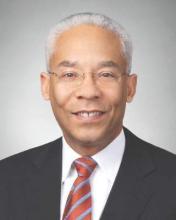A U.S. Supreme Court ruling that expands liability under the federal False Claims Act (FCA) could have both positive and negative implications for physicians accused of submitting false claims to the government.
Justices ruled June 16 that health care providers can be held liable under the FCA if they bill for a service, but fail to comply with underlying regulations, even if the violation is not explicit in the claim. The decision upholds use of the “implied false certification theory” in FCA cases, which provides that any submission for government payment include an implicit certification of compliance with all applicable contract requirements, laws, and regulations.
The ruling allows a lawsuit by a patient’s family to continue against Universal Health Services, a national hospital management company. The plaintiff, Julio Escobar, claims that Universal presented false claims to Medicaid by seeking payments for services provided by unlicensed, unsupervised health care providers. Although the reimbursement claims submitted to the government accurately described the services provided and cited the correct charges, the plaintiffs alleged that because the clinic’s operations violated state requirements to participate in Medicaid, Universal had also violated the FCA. Universal argued the FCA suit was invalid because a reimbursement claim cannot be false unless its details are untrue or inaccurate.
The Supreme Court ruled in favor of the plaintiffs. By using National Provider Identification numbers that corresponded to specific job titles without disclosing many violations of staff and licensing requirements, Universal’s claims constituted misrepresentations, the justices said.
The opinion includes language that is both helpful and harmful to physicians, according to health law attorneys. On the one hand, the justices supported the implied certification theory, thus expanding the scope of potential liability under the FCA in certain circumstances, said George B. Breen, a Washington-based health law attorney.
“The court’s decision is significant for health care providers and suppliers that submit claims to federally funded health care programs, including Medicare and Medicaid, because the FCA remains one of the federal government’s primary enforcement tools,” Mr. Breen said in an interview. “In the court’s view, half-truths in a claim for reimbursement from a government program … [are] just as actionable as an outright lie if the failure to disclose noncompliance with a statute, regulation, or contract term makes those representations misleading half-truths.”
However, the Supreme Court rejected the government’s notion that every omission, regulatory violation, or contract breach can result in fines and damages under the FCA. The compliance violation must be material to the government’s payment decision, the justices said. This means an alleged regulatory or contractual violation must have mattered to the agency’s payment decision to be actionable under the FCA, said David L. Douglass, a Washington-based health law attorney.
In their written opinion, the justices offered this example: If the government adds a requirement that health providers who participate in Medicaid must buy American-made staplers, and a health provider submits a claim but fails to disclose the use of foreign staplers, that provider should not be held liable under the FCA.
“An undisclosed fact is material if, for instance, no one can say with reason that the plaintiff would have signed this contract if informed of the likelihood of the undisclosed fact,” the justices wrote. “A misrepresentation cannot be deemed material merely because the government designates compliance with a particular requirement as a condition of payment. … The False Claims Act does not adopt such an extraordinarily expansive view of liability.”
This aspect of the ruling is good news for defendants and potential FCA targets, Mr. Douglass said in an interview.
“The court has restored the role of the materiality element,” he said. “The materiality element is a stringent protection against the risk that technical instances of noncompliance can become the basis for punitive liability.”
The high court also noted that if the underlying violation is known to widely occur and, nonetheless, Medicare regularly pays such claims, the violation is likely not material to payment, added William W. Horton, a Birmingham, Ala.–based health law attorney and chair of the American Bar Association Health Law Section.
“What I think this does, from the standpoint of defense of these claims, is open up new possibilities for arguing about whether a technical violation of a legal requirement, in fact, satisfies this test,” Mr. Horton said in an interview. “Whether, if CMS had known the violation occurred, would that have been material to CMS’s decision to pay the claim or not?”
But attorneys for plaintiffs and whistle-blowers are also hailing the Supreme Court opinion as positive for their clients.




